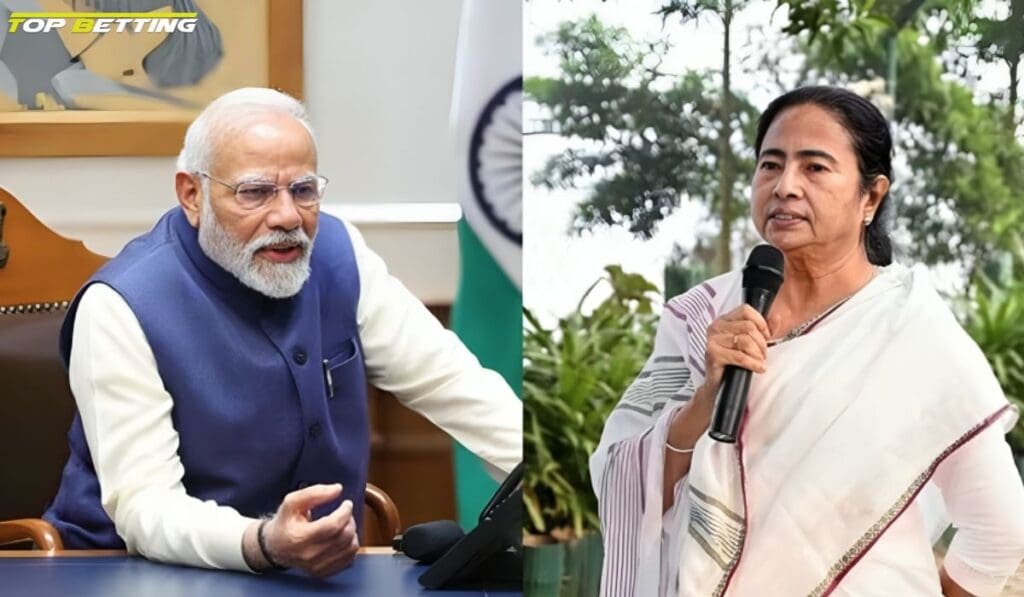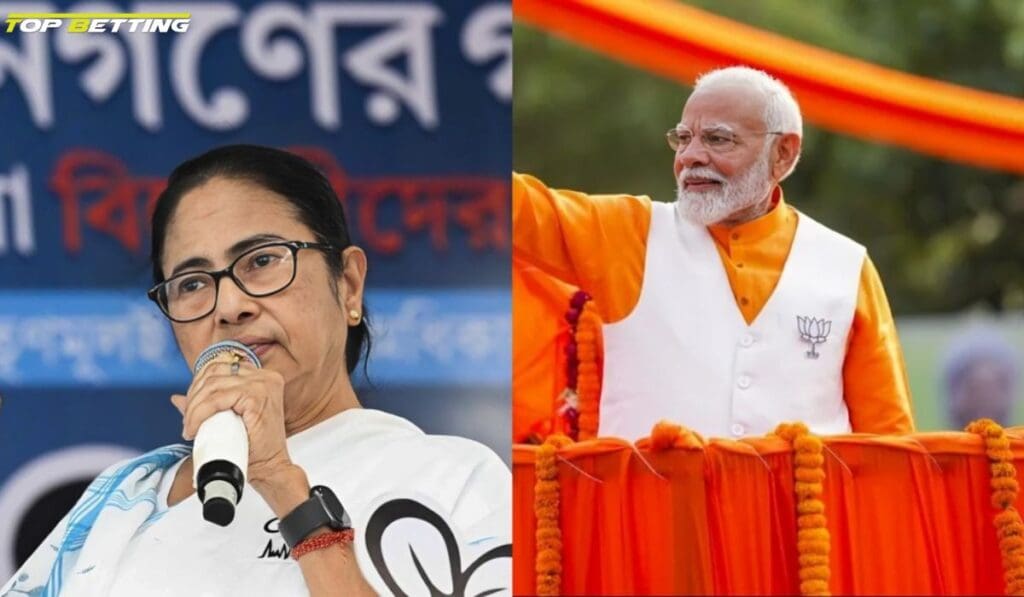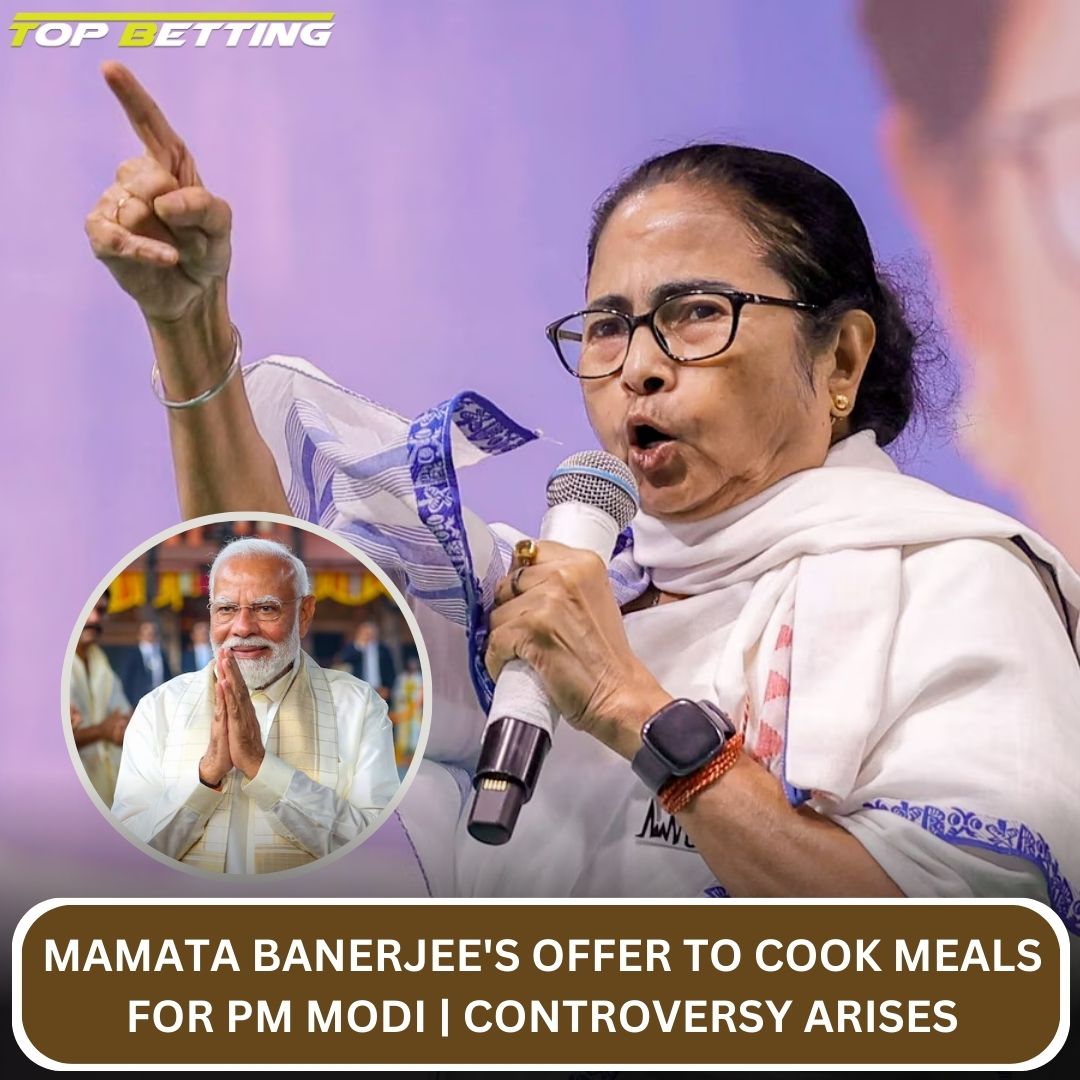
Mamata Banerjee’s offer to cook meals for PM Modi | Controversy arises
Introduction
The political landscape in India has always been rife with heated debates and fiery exchanges, and the latest episode involving West Bengal Chief Minister Mamata Banerjee and Prime Minister Narendra Modi has certainly added fuel to the fire. Banerjee’s offer to cook a meal for the Prime Minister has sparked a flurry of reactions, with the Bharatiya Janata Party (BJP) accusing her of harboring a “political agenda” and a “ploy to trap the PM.”
The controversy erupted after Banerjee responded to PM Modi‘s allegations regarding Rashtriya Janata Dal (RJD) leader Tejashwi Yadav’s dietary habits during the Navratri festival. The West Bengal CM expressed her willingness to cook for the Prime Minister, but with a touch of skepticism, questioning whether he would actually enjoy her culinary creations.
Mamata’s Culinary Credentials and the Offer to Cook for PM Modi
Mamata Banerjee, known for her fiery political rhetoric, has also gained a reputation as an accomplished home cook. In her address to a rally, the Chief Minister proudly declared that she has been cooking since her childhood days and that her culinary skills have been widely praised. However, she expressed uncertainty about whether PM Modi would trust her and accept her home-cooked meals, given their political differences.
Banerjee’s offer to cook for the Prime Minister was seen by some as a gesture of goodwill and an attempt to bridge the political divide. The Chief Minister emphasized that different communities and sects within Hinduism have their own unique rituals and eating habits, and that the BJP leadership has “little idea and concern about the diversity and inclusivity of India and its people.”
BJP’s Scathing Response: Accusing Mamata of Political Agendas
The BJP, however, was quick to dismiss Banerjee’s offer as a “political agenda” and a “ploy to trap the PM.” The party’s state president, Tathagata Roy, called Mamata’s proposal to feed the Prime Minister with her home-cooked fish and rice a “good proposal,” but then questioned why she doesn’t first offer pork chops to her “lieutenant” Firhad Hakim, a senior TMC leader.
BJP leader Sankudeb Panda went a step further, claiming that Banerjee had deliberately invited Modi, knowing well that he is a strict vegetarian. Panda accused the Chief Minister of “insulting devout Sanatani Hindus” and said that her actions were a “ploy to trap the PM.”
Reactions from Other Political Parties
The controversy has also drawn reactions from other political parties, with the Communist Party of India (Marxist) leader Bikash Bhattacharya suggesting that Mamata Banerjee and PM Modi are “responsible for bringing the country to such a state” by “mixing politics with religion.”
Bhattacharya, referring to the jibe “Didibhai-Modibhai” used by the Left and the Bengal Congress unit, said that Banerjee’s offer to cook for the Prime Minister in the backdrop of her public posturing against “Modi’s politics and divisive speeches” shows an “apparent contradiction” in her actions and words.
Deeper Implications: Culinary Choices and Political Divides
The debate surrounding Mamata Banerjee’s offer to cook for PM Modi has highlighted the deeper implications of culinary choices in the political arena. The BJP’s criticism of Banerjee’s proposal has been seen by some as an attempt to impose a certain dietary ideology, which goes against the principles of diversity and inclusivity that the Chief Minister has championed.
The issue has also raised questions about the role of food in shaping political narratives and the extent to which personal preferences and dietary habits can be used as political weapons. As the 2024 Lok Sabha elections loom, the Mamata-Modi culinary clash could be a harbinger of the larger political battles to come.
Mamata’s Culinary Expertise and Inclusive Approach
Mamata Banerjee’s prowess in the kitchen is well-documented, with the Chief Minister claiming to be adept at preparing both vegetarian and non-vegetarian dishes. She has expressed a fondness for a wide range of culinary delights, from the traditional Bengali delicacy of “macher jhol” (fish curry) to the Gujarati staple of “dhokla.”
Banerjee’s inclusive approach to food has been seen as a reflection of her broader political philosophy, which emphasizes the diversity and pluralism of Indian society. By offering to cook for the Prime Minister, the Chief Minister has arguably extended an olive branch, inviting him to partake in a shared culinary experience that transcends political boundaries.
BJP’s Concerns and the Debate over Dietary Choices
The BJP’s criticism of Mamata Banerjee’s offer, however, suggests that the party sees the issue through a different lens. The party’s leaders have accused the Chief Minister of deliberately inviting the Prime Minister, knowing that he adheres to a strict vegetarian diet. This accusation has been interpreted by some as an attempt to portray Banerjee as insensitive to the dietary preferences of devout Hindus.
The debate over dietary choices has long been a contentious issue in Indian politics, with various political parties and leaders often using it as a means to score political points. The BJP’s stance on this matter reflects its perceived commitment to “Hindutva” and the preservation of traditional Hindu values, which the party believes are under threat from the “divisive” politics of Mamata Banerjee and other opposition leaders.

Navigating the Culinary and Political Minefield
As the controversy surrounding Mamata Banerjee’s offer to cook for PM Modi continues to unfold, it is clear that the issue transcends the realms of food and culinary preferences. The debate has become a proxy for the larger political battle between the ruling BJP and the opposition, with both sides seeking to capitalize on the emotive power of food and its cultural significance.
Navigating this culinary and political minefield will require a delicate balance between acknowledging the diversity of dietary preferences and upholding the principles of inclusivity that Mamata Banerjee has championed. The outcome of this clash could have far-reaching implications for the political landscape in the run-up to the 2024 Lok Sabha elections, as both the BJP and the opposition parties seek to position themselves as champions of the people’s interests.

Conclusion: The Enduring Significance of Culinary Diplomacy
Mamata Banerjee’s offer to cook for Prime Minister Narendra Modi has undoubtedly sparked a heated debate, with the BJP accusing the Chief Minister of harboring political agendas and a “ploy to trap the PM.” However, the significance of this culinary gesture extends far beyond the realm of partisan politics.
The controversy has highlighted the enduring relevance of food and culinary diplomacy in shaping political narratives and fostering cross-cultural understanding. As India grapples with the challenges of religious and cultural diversity, the ability to transcend these divides through the shared experience of food could prove crucial in navigating the complex political landscape.










